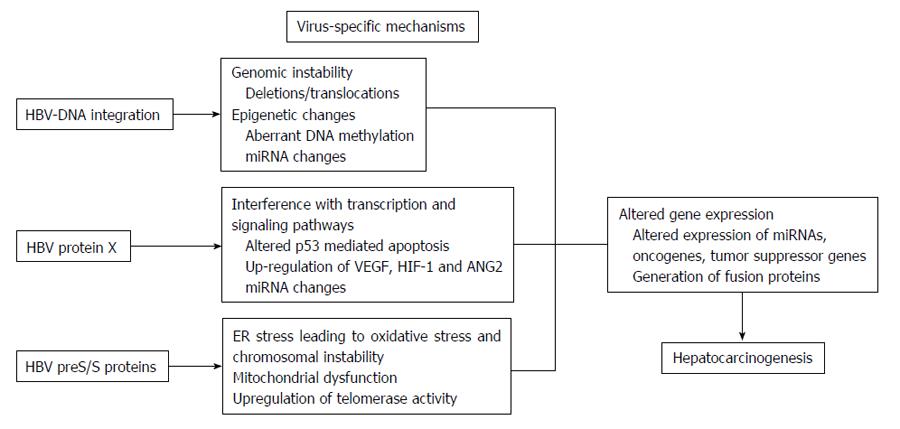Copyright
©The Author(s) 2015.
World J Hepatol. Jul 8, 2015; 7(13): 1742-1754
Published online Jul 8, 2015. doi: 10.4254/wjh.v7.i13.1742
Published online Jul 8, 2015. doi: 10.4254/wjh.v7.i13.1742
Figure 2 Hepatitis B virus has unique virus-specific mechanisms to induce carcinogenesis in the liver.
The integration of hepatitis B virus (HBV)-DNA into the host genome alters DNA expression by gene and/or chromosomal deletions/translocations, and epigenetic changes (aberrant DNA methylation, miRNA changes). Viral protein HBV protein X may cause interference with transcription and signaling pathways leading to altered p53 mediated apoptosis and angiogenesis by up-regulation of vascular endothelial growth factor (VEGF), hypoxia inducible factor-1 (HIF-1) and angiopoietin-2 (ANG2). HBV preS/S proteins cause endoplasmic reticulum stress and mitochondrial dysfunction leading to oxidative stress.
- Citation: Baran B. Nucleos(t)ide analogs in the prevention of hepatitis B virus related hepatocellular carcinoma. World J Hepatol 2015; 7(13): 1742-1754
- URL: https://www.wjgnet.com/1948-5182/full/v7/i13/1742.htm
- DOI: https://dx.doi.org/10.4254/wjh.v7.i13.1742









